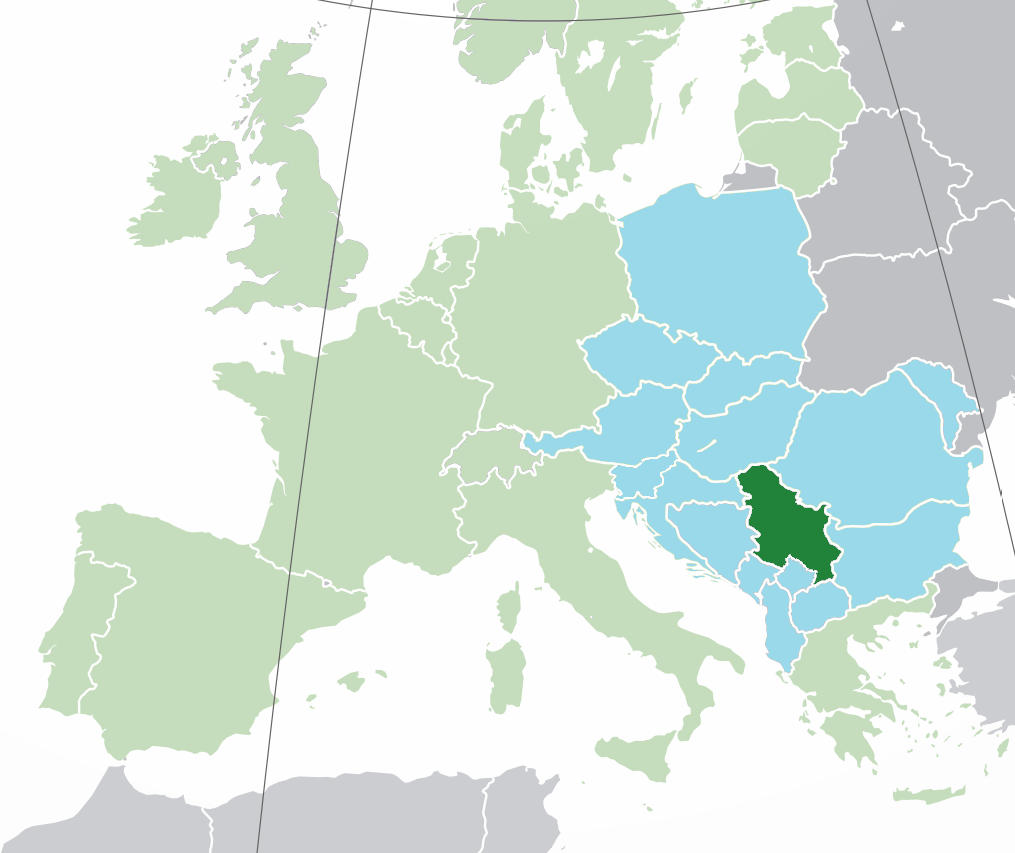
Serbia participates with two groups located at
Faculty of Technology, University of Novi Sad
Faculty of Sciences, University of Novi Sad
The first group from the University of Novi Sad is located at the Faculty of Technology. This research group is active in various domains of Colloid and Interface Science. Research interest focuses on material science and nanotechnology, in particular on (1) design of functional colloids aimed for a range of applications, (2) biopolymer nanoparticles, pseudolatex edible films, micro- and nanoencapsulation, (3) Functional printing materials, inkjet, sensors, printed electronics. Our expertise encompasses rheology, interfaces, polymer-surfactant-interactions, and dispersions. Recently, we have been interested in colloidal behaviour and application of biopolymers which are weakly soluble in water, e.g. zein and silk fibroin. Our laboratory is equipped for preparation and characterization of various colloidal systems. Available equipment includes different dispersers and homogenizers, rheometer, capillary viscometers, tensiometer, UV/Vis spectrophotometer, conductometer, optical microscope, centrifuges, zetasizer, mastersizer and spray dryer.
Contact person:
Prof. Dr. Jaroslav Katona (e-mail: jaroslav.katona@uns.ac.rs)
Faculty of Technology
University of Novi Sad
Bul. cara Lazara 1
RS-21000 Novi Sad
The second group from the University of Novi Sad, Serbia, is located at the Faculty of Sciences, Department of chemistry, biochemistry and environmental protection. The interest of this scientific group are ionic liquids and deep eutectic solvent (DES) chemistry. The research focuses on the synthesis of biologically and pharmaceutically active ionic liquids and DESs, their physicochemical (density, viscosity, conductivity, thermal properties, etc.), toxicological and metabolic activity, and application in various analytical methods and procedures. The group deals with the application of ionic liquids in separation techniques, investigating the interactions with water and other solvents, optimisation and application of new electrolytes with improved safety in new generations of lithium-ion batteries, agriculture, food and pharmaceutical industry, as well as the reactions of association and complex formation in ionic liquids.
Special attention has been paid to task-specific ionic liquids in the form of advanced sports supplements and analytical techniques for their characterisation and determination in biological samples. Our team can offer a “smart design” of new and improved commercial formulations of sports supplements and nutraceuticals from the aspect of improving solubility, bioavailability and organoleptic properties. The composition of the final formulations and purity are confirmed by modern spectroscopic methods (NMR and FTIR spectroscopy), as well as the content of moisture traces (Karl-Fischer coulometric titration). Through qualitative and quantitative analysis, we examine the physicochemical properties, stability, and solubility of improved compounds (HPLC, spectrophotometric, gravimetric method), as well as other parameters that affect the biological availability of new nutraceuticals. Using high-precision chromatographic methods, we can determine the pharmacokinetic profile of new active substances and their toxicological properties through adequate in vitro and in vivo tests.
Regarding experimental approach, the group possesses Karl Fisher coulometric titrator Metrohm 831, Agilent 1200 series High Performance Liquid Chromatography (HPLC) with different 3 detectors (RID – refraction index detector, DAD – diode array detector, fluorometric detector), Rudolph Research Analytical densimeter DDM 2911, Rotation Brookfield viscometer, Conductometer Mettler Toledo, UV-Vis Spectrophotometer Shimadzu, IKA rotation vacuum evaporator, Differential scanning calorimeter DSC, Infrared spectrometer Shimadzu IRAffinity-1S, TG/DSC thermal analyzer TA Instruments SDT Q600, MS detector Hiden Analytical HPR-20/QIC mass spectrometer.
Contact person:
Prof. Dr. Milan Vraneš (e-mail: milan.vranes@dh.uns.ac.rs)
Faculty of Sciences
University of Novi Sad
Trg Dositeja Obradovića 3
RS-21000 Novi Sad
